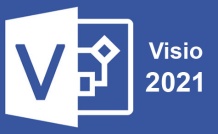Online Class: Organizational Psychology 101

no certificate
with CEU Certificate*
-
10Lessons
-
15Exams &
Assignments -
979Students
have taken this course -
6Hours
average time -
0.6CEUs
Course Description
Whether you choose to later enter into Training and Development, Employee Motivation or Diversity Coaching this course will teach you what you need to know in order to make the leap towards the growing field of Industrial and Organizational Psychology.
Course Motivation
Do you need a graduate degree for I/O?
While jobs still remain in this field that requires only an undergraduate degree, most have moved to higher expectations. It is possible to find entry level positions that seek individuals at the undergraduate level, however, if you want to move into a specialized, higher earning area, then you will, at some point, have to seek an advanced degree. If you desire to be an I/O "psychologist" then you must earn a master's degree and, in some cases, even a PhD in the field.
However, if you are not sure what specialty you desire or would like to learn more about the field while getting "hands-on" experience before making the huge commitment to graduate studies there are some options. It is possible to "scope out" the field by taking a position closely related to it and in this manner discover if I/O psychology is something you would like to pursue further. There are also many companies who will provide tuition reimbursement to those seeking to advance their studies. These are fantastic opportunities as they allow you to work within the area of interest while earning your degree part-time. After your degree is earned it is likely that you will be offered a position in I/O within the company you have been working for.
Some possibilities for undergraduates include retail management, human resource management, organizational development, industrial relations, ergonomics, personnel analysis, and marketing research. Generally speaking a master's degree will provide more I/O opportunities upon graduation then will a bachelor's degree.
The best bachelor's degree to have before pursuing a master's degree in I/O would be Psychology, of course! However, Psychology is not the only game in town, those with undergraduate degrees in English, Communication, Business, Computer Science, and even Education are all possibilities. Certainly it will be slightly more difficult for those who did not earn their undergraduate degree in psychology to move to the graduate level of study in psychology, however, with a strong inclination and a little hard work they can do just as well at the master's level as their psychology degreed counterparts. If you are now, or will soon be, a student earning your undergraduate degree it is highly suggested that you either switch your major to psychology or at the very least take several elective courses in that major if you have decided that I/O is the field you want to enter.
You can expect a master's degree in Organizational Psychology to take two to three full years if attending school full-time, three to five if you are attending part-time. If you have not learned how to organize yourself efficiently and have found this to be a problem for you during your B.A. or B.S. studies you should take a course on proper organizational techniques before beginning your studies. By all means speak with those who are already enrolled in graduate studies for I/O at your college of choice and get a good understanding from the school staff of what will be expected of you during the application process.
Just as you did for your bachelor's degree, you will want to research various universities and colleges to find the curriculum that best suits your current needs and future goals. As most spots in excellent I/O programs are limited you must be sure to keep your GPA as high as possible and prepare well for your Graduate Record Exam. To get into the best programs a GPA of 3.5 or higher for your junior and senior years is required. Graduate schools do not take freshman and sophomore GPA scores into consideration, so if you slacked in your first two years, there is still hope for you to reach your goals of attending a good to excellent I/O program!
There are many fine courses available for GRE test preparation and you should begin looking into them by your junior year of college. Consult your student advisor to get the best information for you in regard to the best universities for your needs.
- Great to excellent Junior and Senior GPA, 3.5 and above is ideal.
- GRE score of 1030 or better.
- Very good to excellent Math Skills and grades.
- Proficiency with Computer Technology.
- Letters of recommendation from at least three professors at your current school.
- Excellent organizational skills.
- Excellent written and verbal communication skills.
Conclusion
If you desire a high earning position in Industrial and Organizational Psychology then you must earn a master's degree in the field. Whether or not to pursue a PhD is a choice you will have to make as you advance in your educational or working career. PhDs on the whole earn more money; however, jobs for such highly educated individuals are fewer and more competitive. If you plan on entering the field of academic research then a PhD would be your best choice; for the private sector, however, a master's will serve you quite well.
Be sure to prepare well for your graduate studies well before you take that step. Preparation should come in the form of keeping your GPA as high as possible and by earning a score of at least a 1030 on your GREs. It would also aid you considerably to take a course or read several books on organizing yourself and maintaining your schedule to increase your chances of making it through graduate school successfully.
- Completely Online
- Self-Paced
- Printable Lessons
- Full HD Video

- 6 Months to Complete
- 24/7 Availability
- Start Anytime
- PC & Mac Compatible
- Android & iOS Friendly
- Accredited CEUs

Course Lessons
Lesson 1. Preparation for a Career in Industrial and Organizational Psychology
 Lesson 1 Video
Lesson 1 Video Lesson discussions: Poll; Reasons for Taking this Course
Lesson discussions: Poll; Reasons for Taking this Course Assessment: Lesson 1 Exam
Assessment: Lesson 1 Exam
Lesson 2. Specializations in Organizational Psychology
 Lesson 2 Video
Lesson 2 Video Complete: Lesson 2 Assignment
Complete: Lesson 2 Assignment Assessment: Lesson 2 Exam
Assessment: Lesson 2 Exam
Lesson 3. Motivation and Leadership
 Lesson 3 Video
Lesson 3 Video Assessment: Lesson 3 Exam
Assessment: Lesson 3 Exam
Lesson 4. Employee Selection
 Lesson 4 Video
Lesson 4 Video Complete: Lesson 4 Assignment
Complete: Lesson 4 Assignment Assessment: Lesson 4 Exam
Assessment: Lesson 4 Exam
Lesson 5. Training and Development
 Lesson 5 Video
Lesson 5 Video Assessment: Lesson 5 Exam
Assessment: Lesson 5 Exam
Lesson 6. Organization Development and Guided Change
 Lesson 6 Video
Lesson 6 Video Complete: Lesson 6 Assignment
Complete: Lesson 6 Assignment Assessment: Lesson 6 Exam
Assessment: Lesson 6 Exam
Lesson 7. Organizational Behavior
 Lesson 7 Video
Lesson 7 Video Complete: Lesson 7 Assignment
Complete: Lesson 7 Assignment Assessment: Lesson 7 Exam
Assessment: Lesson 7 Exam
Lesson 8. Work, Stress, and Family Issues
 Lesson 8 Video
Lesson 8 Video Complete: Lesson 8 Assignment
Complete: Lesson 8 Assignment Assessment: Lesson 8 Exam
Assessment: Lesson 8 Exam
Lesson 9. Job Analysis
 Lesson 9 Video
Lesson 9 Video Assessment: Lesson 9 Exam
Assessment: Lesson 9 Exam
Lesson 10. The Use of Psychometric Testing
 Lesson 10 Video
Lesson 10 Video Lesson discussions: Course Conclusion Poll; Survey: Course Comments; Program Evaluation Follow-up Survey (End of Course)
Lesson discussions: Course Conclusion Poll; Survey: Course Comments; Program Evaluation Follow-up Survey (End of Course) Assessment: Lesson 10 Exam
Assessment: Lesson 10 Exam
Learning Outcomes
- Describe preparations for a career in industrial and organizational psychology.
- Describe specializations in organizational psychology.
- Summarize motivation and leadership.
- Summarize techniques for employee selection.
- Describe procedures for training and development.
- Define organization development and guided change.
- Summarize organizational behavior.
- Describe work, stress and family issues.
- Summarize conducting job analysis.
- Describe the use of psychometric testing.
- Demonstrate mastery of lesson content at levels of 70% or higher.
Additional Course Information

- Document Your Lifelong Learning Achievements
- Earn an Official Certificate Documenting Course Hours and CEUs
- Verify Your Certificate with a Unique Serial Number Online
- View and Share Your Certificate Online or Download/Print as PDF
- Display Your Certificate on Your Resume and Promote Your Achievements Using Social Media

Choose Your Subscription Plan
No Certificate / No CEUs
This course only
| Includes certificate | X |
| Includes CEUs | X |
| Self-paced |

|
| Instructor support |

|
| Time to complete | 6 months |
| No. of courses | 1 course |
Certificate & CEUs
This course only
| Includes certificate |

|
| Includes CEUs |

|
| Self-paced |

|
| Instructor support |

|
| Time to complete | 6 months |
| No. of courses | 1 course |
Certificates & CEUs
Includes all 600+ courses
| Includes certificate |

|
| Includes CEUs |

|
| Self-paced |

|
| Instructor support |

|
| Time to complete | 12 Months |
| No. of courses | 600+ |
Certificates & CEUs
Includes all 600+ courses
| Includes certificate |

|
| Includes CEUs |

|
| Self-paced |

|
| Instructor support |

|
| Time to complete | 24 Months |
| No. of courses | 600+ |
Related Courses
-
 29 hours
2.9 CEUs
Human Resources Productivity Course Bundle
$120.00
29 hours
2.9 CEUs
Human Resources Productivity Course Bundle
$120.00
-
 3 hours
0.3 CEUs
Building Self Esteem
$95.00
3 hours
0.3 CEUs
Building Self Esteem
$95.00
-
 9 hours
0.9 CEUs
Introduction to Six Sigma
$95.00
9 hours
0.9 CEUs
Introduction to Six Sigma
$95.00
-
 6 hours
0.6 CEUs
Mindfulness in the Workplace
$95.00
6 hours
0.6 CEUs
Mindfulness in the Workplace
$95.00
-
 8 hours
0.8 CEUs
Crisis Management 101
$95.00
8 hours
0.8 CEUs
Crisis Management 101
$95.00
-
 7 hours
0.7 CEUs
Conflict Resolution 101
$95.00
7 hours
0.7 CEUs
Conflict Resolution 101
$95.00
-
 7 hours
0.7 CEUs
Collaboration Skills
$95.00
7 hours
0.7 CEUs
Collaboration Skills
$95.00
-
 7 hours
0.7 CEUs
Management Consultant 101
$95.00
7 hours
0.7 CEUs
Management Consultant 101
$95.00
-
 5 hours
0.5 CEUs
Depression Management
$95.00
5 hours
0.5 CEUs
Depression Management
$95.00
-
 5 hours
0.5 CEUs
Personal Protective Equipment
$95.00
5 hours
0.5 CEUs
Personal Protective Equipment
$95.00
-
 5 hours
0.5 CEUs
Workplace Safety
$95.00
5 hours
0.5 CEUs
Workplace Safety
$95.00
-
 7 hours
0.7 CEUs
How to Deal with Difficult Personalities
$95.00
7 hours
0.7 CEUs
How to Deal with Difficult Personalities
$95.00
-
 7 hours
0.7 CEUs
Lean Management
$95.00
7 hours
0.7 CEUs
Lean Management
$95.00
-
 5 hours
0.5 CEUs
Diversity Training 101
$95.00
5 hours
0.5 CEUs
Diversity Training 101
$95.00
-
 7 hours
0.7 CEUs
Introduction to Ethics
$95.00
7 hours
0.7 CEUs
Introduction to Ethics
$95.00
-
 5 hours
0.5 CEUs
Building Self-Esteem in Children
$95.00
5 hours
0.5 CEUs
Building Self-Esteem in Children
$95.00
-
 5 hours
0.5 CEUs
Kaizen 101 - An Introduction
$95.00
5 hours
0.5 CEUs
Kaizen 101 - An Introduction
$95.00
-
 3 hours
0.3 CEUs
Single Parenting 101
$95.00
3 hours
0.3 CEUs
Single Parenting 101
$95.00
-
 9 hours
0.9 CEUs
Relaxation 101
$95.00
9 hours
0.9 CEUs
Relaxation 101
$95.00
-
 6 hours
0.6 CEUs
Microsoft Visio 2021
$95.00
6 hours
0.6 CEUs
Microsoft Visio 2021
$95.00
-
 4 hours
0.4 CEUs
Stress Management
$95.00
4 hours
0.4 CEUs
Stress Management
$95.00
-
 5 hours
0.5 CEUs
SalesForce 101
$95.00
5 hours
0.5 CEUs
SalesForce 101
$95.00
-
 5 hours
0.5 CEUs
Recruitment and Retention Strategies
$95.00
5 hours
0.5 CEUs
Recruitment and Retention Strategies
$95.00
-
 4 hours
0.4 CEUs
Purchasing and Vendor Management 101
$95.00
4 hours
0.4 CEUs
Purchasing and Vendor Management 101
$95.00
-
 5 hours
0.5 CEUs
Emotional Intelligence
$95.00
5 hours
0.5 CEUs
Emotional Intelligence
$95.00
-
 6 hours
0.6 CEUs
Generational Diversity in the Workplace
$95.00
6 hours
0.6 CEUs
Generational Diversity in the Workplace
$95.00
-
 6 hours
0.6 CEUs
Gender Sensitivity Training
$95.00
6 hours
0.6 CEUs
Gender Sensitivity Training
$95.00
-
 8 hours
0.8 CEUs
Procurement Management
$95.00
8 hours
0.8 CEUs
Procurement Management
$95.00
-
 9 hours
0.9 CEUs
Product Management 101
$95.00
9 hours
0.9 CEUs
Product Management 101
$95.00
-
 8 hours
0.8 CEUs
Meditation 101: Learn How to Meditate
$95.00
8 hours
0.8 CEUs
Meditation 101: Learn How to Meditate
$95.00
-
 9 hours
0.9 CEUs
Counseling Psychology 101
$95.00
9 hours
0.9 CEUs
Counseling Psychology 101
$95.00
-
 5 hours
0.5 CEUs
The Art of Breathing
$95.00
5 hours
0.5 CEUs
The Art of Breathing
$95.00
-
 5 hours
0.5 CEUs
Creative Thinking
$95.00
5 hours
0.5 CEUs
Creative Thinking
$95.00
-
 5 hours
0.5 CEUs
Running Effective Meetings
$95.00
5 hours
0.5 CEUs
Running Effective Meetings
$95.00
-
 6 hours
0.6 CEUs
Job Performance Appraisals - A How To Guide
$95.00
6 hours
0.6 CEUs
Job Performance Appraisals - A How To Guide
$95.00
-
 5 hours
0.5 CEUs
Goal Setting 101
$95.00
5 hours
0.5 CEUs
Goal Setting 101
$95.00
-
 6 hours
0.6 CEUs
Leadership and Supervision 101
$95.00
6 hours
0.6 CEUs
Leadership and Supervision 101
$95.00
-
 6 hours
0.6 CEUs
Workplace Violence: A Guide to Responding and Preventing
$95.00
6 hours
0.6 CEUs
Workplace Violence: A Guide to Responding and Preventing
$95.00
-
 5 hours
0.5 CEUs
Mastering Conversation Skills
$95.00
5 hours
0.5 CEUs
Mastering Conversation Skills
$95.00









